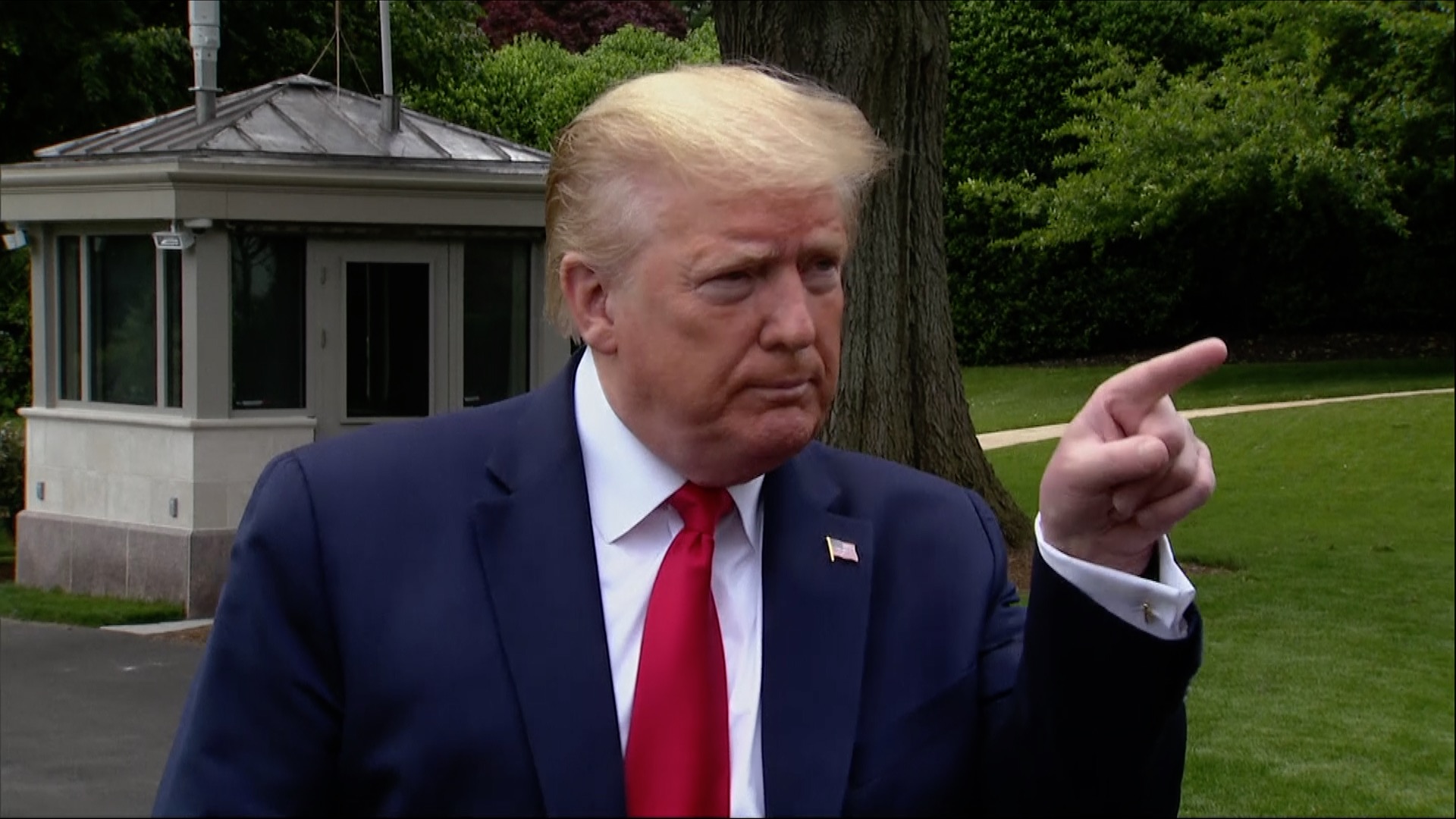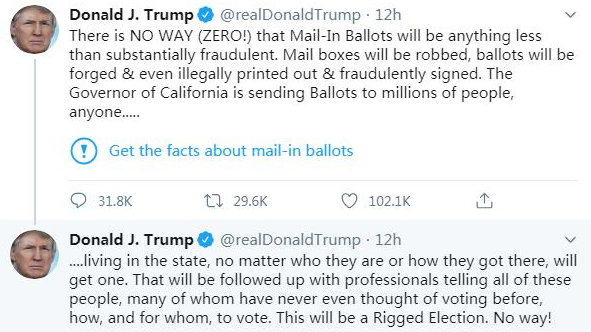01:01

U.S. President Donald Trump on Wednesday threatened to close down social media platforms after Twitter labeled two of his tweets "unsubstantiated" and accused him of making false claims.
"Republicans feel that Social Media Platforms totally silence conservatives voices. We will strongly regulate, or close them down, before we can ever allow this to happen," Trump tweeted.
The president's latest tweet came one day after Twitter for the first time prompted readers to check the facts in tweets sent by him, warning his claims about mail-in ballots were false and had been debunked by fact checkers.
Hours after the company's move, Trump on Tuesday tweeted and accused the company of interfering in the 2020 presidential election. "Twitter is completely stifling FREE SPEECH, and I, as President, will not allow it to happen!" he said.
The blue exclamation mark notification prompted readers to "get the facts about mail-in ballots" and directed them to a page with news articles and information about the claims aggregated by Twitter staffers.
"Trump makes unsubstantiated claim that mail-in ballots will lead to voter fraud," said a headline at the top of the page, followed by a "what you need to know" section correcting three false or misleading claims made in the tweets.
Trump had claimed in tweets earlier in the day that mail-in ballots would be "substantially fraudulent" and result in a "rigged election." He also singled out the governor of California over the issue, although the state is not the only one to use mail-in ballots.
Twitter confirmed this was the first time it had applied a fact-checking label to a tweet by the president, in an extension of its new "misleading information" policy introduced this month to combat misinformation about the coronavirus.

Twitter slaps a warning label on two of Donald Trump's tweets. /Screenshot from Twitter
Twitter slaps a warning label on two of Donald Trump's tweets. /Screenshot from Twitter
The company said at the time it would later extend the policy on disputed or misleading information about COVID-19 to other topics.
Twitter's actions quickly drew criticism from its users. Some said Twitter should say in the label that Trump's tweets contained false information, and some said simply labeling them is not enough.
Twitter's fact-checking notification on Wednesday came hours after the social network declined to take action on tweets Trump sent about the 2001 death of a former congressional staff member, after her widower asked the company to remove them for furthering false claims.
A Twitter spokesman said that the difference was that the later Trump tweets were related to election integrity.
In response to Trump's "rigged election" caused by mail-in ballots, Twitter's fact-checkers said there is no evidence that mail-in ballots are linked to voter fraud.
Earlier tweets in which Trump made similar claims did not appear to be similarly labeled.
Trump has long used Twitter as a platform to spread conspiracy theories and false information to his 80 million followers. Days ago, the president tweeted more than once to spread the rumor that coronavirus originated in China, although there is no scientific or official consensus about the origin of the virus.
The tweets in question violated a recently expanded Twitter policy, according to the San Francisco-based company.
"In serving the public conversation, our goal is to make it easy to find credible information on Twitter and to limit the spread of potentially harmful and misleading content," head of site integrity Yoel Roth and global public policy director Nick Pickles said when the change was announced.
Recently, the social media giant started labeling false or misleading tweets about COVID-19 and is looking to expand more broadly. But the company has not said when this tool would be available. Judging by the past, it is still not clear if these structures would apply to Trump and other world leaders.
In thinking that politicians' controversial tweets could encourage discussion, Twitter often takes a hands-off approach to political leaders. Last year, the tech giant said it would consider slapping warning labels on some tweets published by world leaders, noting that all Twitter users follow the same rules. However, Twitter has yet to use such labels.
(With input from agencies)



